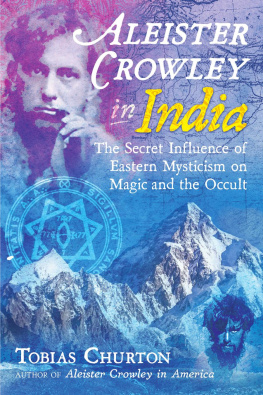Tobias Hill - The Hidden
Here you can read online Tobias Hill - The Hidden full text of the book (entire story) in english for free. Download pdf and epub, get meaning, cover and reviews about this ebook. year: 2009, genre: Detective and thriller. Description of the work, (preface) as well as reviews are available. Best literature library LitArk.com created for fans of good reading and offers a wide selection of genres:
Romance novel
Science fiction
Adventure
Detective
Science
History
Home and family
Prose
Art
Politics
Computer
Non-fiction
Religion
Business
Children
Humor
Choose a favorite category and find really read worthwhile books. Enjoy immersion in the world of imagination, feel the emotions of the characters or learn something new for yourself, make an fascinating discovery.
- Book:The Hidden
- Author:
- Genre:
- Year:2009
- Rating:3 / 5
- Favourites:Add to favourites
- Your mark:
- 60
- 1
- 2
- 3
- 4
- 5
The Hidden: summary, description and annotation
We offer to read an annotation, description, summary or preface (depends on what the author of the book "The Hidden" wrote himself). If you haven't found the necessary information about the book — write in the comments, we will try to find it.
The Hidden — read online for free the complete book (whole text) full work
Below is the text of the book, divided by pages. System saving the place of the last page read, allows you to conveniently read the book "The Hidden" online for free, without having to search again every time where you left off. Put a bookmark, and you can go to the page where you finished reading at any time.
Font size:
Interval:
Bookmark:
A Novel

I have hidden something in the inner chamber
And sealed the lid of the sarcophagus
And levered a granite boulder against the door
And the debris has covered it so perfectly
That though you walk over it daily you never suspect.
ANTHONY THWAITE
The power of hiding ourselves from one another is mercifully given, for men are wild beasts, and would devour one another but for this protection.
HENRY WARD BEECHER
Every thing secret degenerates.
JOHN DALBERG-ACTON
Notes Towards a Thesis
Metamorphosis
Notes Towards a Thesis
Monsters
Notes Towards a Thesis
Lacedaemonia
Shovelmonkey Number Five
Notes Towards a Thesis
Burials
Notes Towards a Thesis
Shoot-Em-Up
Notes Towards a Thesis
The Cave
Notes Towards a Thesis
The Hidden
The Careful Application of Terror
It has been said that history is written by the victors. The truism is false in one case. The Spartans were once masters of all they surveyed, prevailing over Greece through fear and war, yet did not trust their prevalence to writing.
The written word is unselfish. It gives up its secrets readily: it speaks to friend and foe alike. For this reason the Spartans entrusted few things to its care. They were a secretive people. They wrote little plainly, and little even of that little has survived. The Spartan writings that have come down to usAlcmans joyful Maiden Songs, Lysanders vainglorious inscriptionsare not the missing pieces of the puzzle so much as the only pieces left of a puzzle which is itself missing, so that the nature of the puzzlethe nature of Spartahas itself become a riddle.
It is hazardous to assume almost anything of such a reticent people. It might be assumed (for example) that our uncertainty would satisfy the Spartans, but there is no certainty even in this. That they have left no explanations for the world would not concern them unduly, since they had scant concern for the opinions of the world. That they would be judged not by their words but by their actions might have seemed to them fitting, since they were a people who did much but said little. And that their own history should be based on little more than guesswork, such as these guesses of my ownthat their secrets should still hold, two and a half thousand years onthat might also have pleased them.
Would it please them to be remembered at all? Those who dealt with them describe a proud people. No one likes to be forgotten. But the curiosity of history is a relentless thing, and the importance of Sparta is such that the good historian cannot pass it by. What remains is endlessly scoured for the gold of the truth. The motives of the generals and kings are examined and re-examined, doubted and picked apart. The rare achievements of archaeology are magnified in importance, sometimes beyond their due. And the known actions of the Spartans assume the prominence of legends, so that the mythology of the city has come to have more influence than its archaeology may ever possess.
For example, there is the legend of the Battle of Thermopylae. It goes like this.
Four hundred and eighty years before Christ, the Persians set out to conquer Greece. Their army was as vast as their empire itself, which stretched from the Nile to the Indus. So inevitable was their victory that the Great King Xerxes travelled with his people to see his conquests with his own eyes. So overwhelming was his power that much of Hellas made peace before the Great King reached Greek lands, offering him earth and water, the Persian tokens of submission.
Those who resisted were led by the Spartans. Few, though, were willing to speak of war against the empire, and fewer to back up words with men. The Persians had reached as far south as the pass of Thermopylae, two hundred miles from Sparta, before any Hellene stood against them.
Thermopylae: The Hot Gates . The pass was named after its springswhich were volcanic and sulphurousand after its three narrows; its gates. It was a low road, overhung with cliffs to the south and overlooking the sea to the north. Inland there were only interminable mountains, high forest and crags, land good for goats and not much else. At its gates the pass was no more than fifty feet across. The Persians could have found other ways south if they had wished to seek them. But they did not wish. They did not need to wish. They chose to go through Thermopylae, where their enemies had gathered.
Xerxes enemies were commanded by Leonidas, King of the Spartans. He led five thousand two hundred Greeks. Among them were three hundred Equals, the men of Sparta, who spent their lives in nothing but the practice and execution of war.
They faced three hundred thousand Persians. Across the Hellespont, and westwards, the Great King had brought an even greater force: in his vanguards wake came an army of eight hundred thousand. Xerxes felt no need to bring his full million to bear against the few at Thermopylae. With him were his Immortals, after all, the finest ten thousand soldiers of the empire.
Xerxes was merciful. For three days the Great King waited for the Greeks to give up the pass. But they did not do so. His scouts informed him that the foreigners were rebuilding an old wall that spanned one gate. Against such odds, the Hellenes meant to make a stand at Thermopylae. And there was something else, even more bewildering. Among the Greeks were men in red cloaks. These men were not even readying themselves for battle, as the others were. They were performing exercises. They were seen to be combing their hair. The informers of the Great King told him that these were the Spartans. By making their heads beautiful, the informers said, the Spartans were preparing themselves to die.
When he heard this, the Great King ordered his army on. His pavilion was pitched on the highlands above Thermopylae. There he sat to witness the demise of his enemies.
The Battle of Thermopylae lasted three days. On the first morning the Great King sent out his Medes and Cissians. His orders were that the Greeks be taken alive: but the Greeks drove back the Persians. In the afternoon the Great King withdrew his common troops and sent forward his Immortals. They too were repulsed. Three times the Great King was seen to leap from his chair as he watched. As night fell the Greeks still held their wall.
The second day began as the first had ended. The Great King sat and watched his men die. The Hot Gates were a killing ground. In their narrows the Persians could not bring their numbers to bear. Their archers carried bows as long as they themselves were tall, but when they came up the Greeks lay low behind their makeshift wall. The Persian infantry were deft, but their spears were over-reached by those of the Hellenes. Sometimes the men in red cloaks would take their turn in the fighting. Sometimes their lines would seem to break, their men scattering away in the terror of battle only to suddenly reform, their shields coming together with a sound like a rolling of drums, the onrushing Persians impaled on their spears.
It was the season of summer storms. The days were hot, unbearably close. At night the moon shone near full through the rain. The Persians were far from home. The mud matted their skin and hair. Their eyes stared white from their darkened faces. The air smelled of urine and brimstone and ozone.
On the afternoon of the second day a local man was brought before the Great King. He knew, he said, of a path through the mountains. If the Great King so wished, he could send men along the path to the far end of Thermopylae. The Greeks would be trapped like quail in a net.
Font size:
Interval:
Bookmark:
Similar books «The Hidden»
Look at similar books to The Hidden. We have selected literature similar in name and meaning in the hope of providing readers with more options to find new, interesting, not yet read works.
Discussion, reviews of the book The Hidden and just readers' own opinions. Leave your comments, write what you think about the work, its meaning or the main characters. Specify what exactly you liked and what you didn't like, and why you think so.












